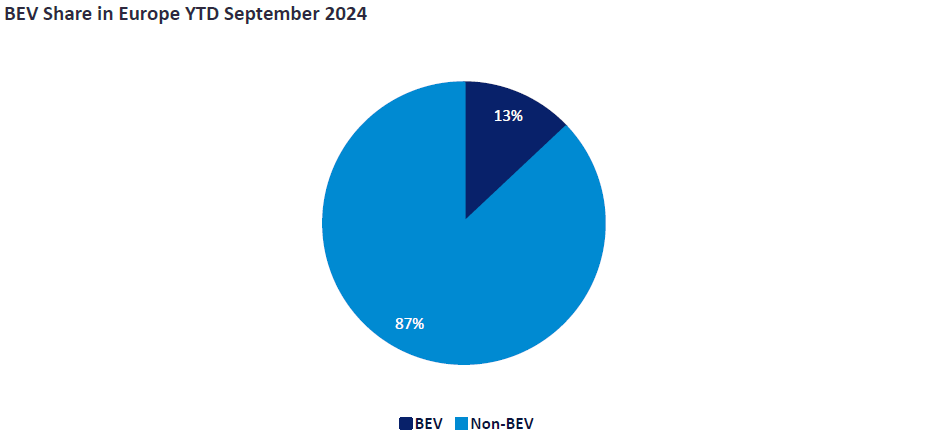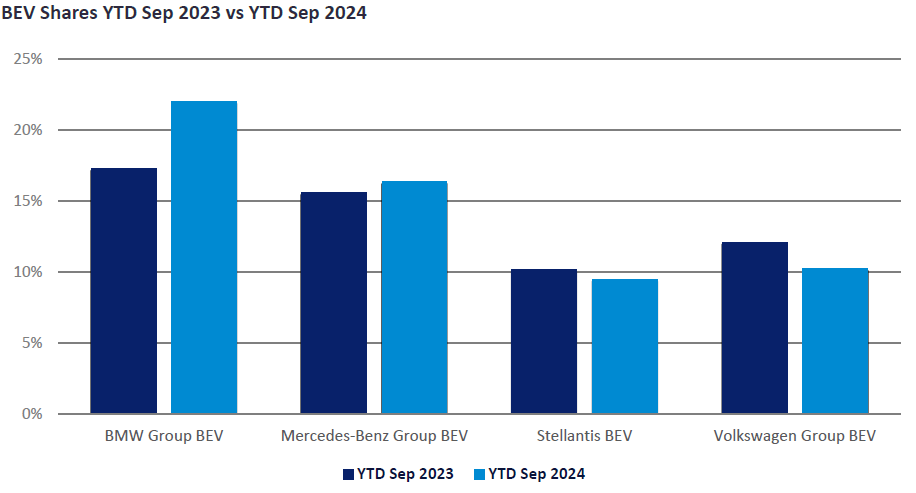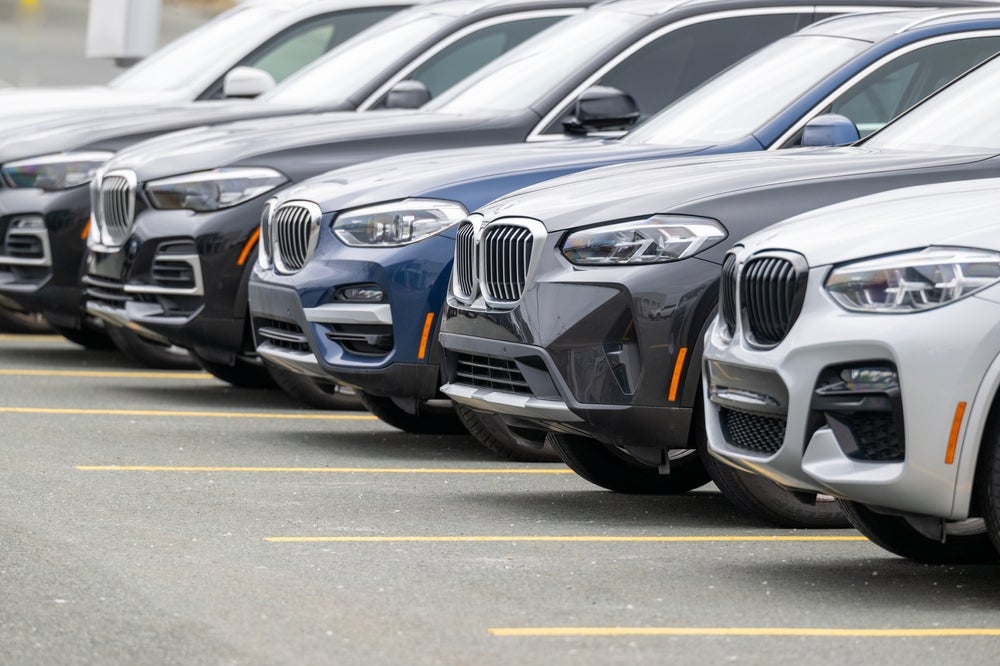Instead of a healthy car market, we are witnessing a series of closures, cancellations, much anxiety and a whole lot of uncertainty!

Vehicle sales figures throughout Europe in the first half of the year fell short of expectations, particularly regarding the anticipated growth of Battery Electric Vehicles (BEVs). However, a mild improvement was observed in the third quarter.
Nearly half of all European markets experienced a decline in battery electric vehicle sales to September of this year, compared to the corresponding period in 2023 – this was contrary to consensus market projections. Battery electric vehicle sales in the EU experienced a year-on-year decline of 4% during the first nine months, prompting most OEMs to re-evaluate and rescale their investment plans and strategies towards electrification.


BMW: leading the way
BMW has been performing well and has sustained a prominent position in Europe’s challenging BEV market, attaining more than a 20% battery electric vehicle share of its vehicle sales. Most of this robust performance can be attributed to its powertrain strategy, which involves the implementation of a mixed platform designed to support both BEV and non-BEV powertrains. The highly anticipated NK platform, specifically designed for BEVs, is projected to boost BEV sales via enhanced performance and efficiency, combined with competitive pricing (through reduced battery costs).
Mercedes proceeding at a measured pace
Mercedes group reported a mere 5% increase in BEV demand in the first three quarters of 2024 compared to the corresponding period in 2023. The group is currently falling short of its targets for BEV sales, leading it to reconsider its goal of transitioning to an exclusively electric brand by the year 2030. Mercedes is advancing its roadmap to electrification through a hybrid powertrain platform known as MMA, with the first model to use it being the CLA. This model was originally intended to be exclusively BEV, but it is now anticipated to include hybrid variants as well. The group remains committed to achieving a zero-emission future; however, there is now a renewed focus on developing enhanced internal combustion engines, incorporating various levels of electrification.
Stellantis: Dare Forward 2030
Stellantis is progressing with its electrification initiative (Dare Forward 2030) and remains committed to advancing the transition towards sustainable mobility, aiming to achieve carbon net-zero status by 2038. This commitment persists despite the observed decrease in the group’s BEV market share in 2024. The STLA platforms developed by the group have proven to be a significant advantage, demonstrating the flexibility to support various powertrains, including BEVs. However, during the first three quarters of this year, the group’s BEV sales saw a year-over-year decrease of 15%. The company has encountered numerous challenges (supplier disputes, delayed launches, profits dropping by 48% in the first half of the year), leading to noticeable changes in management throughout the year.
Volkswagen struggles
The Volkswagen Group has also faced challenges in achieving its BEV sales targets and is contemplating the shutdown of multiple facilities in Germany, including the iconic Audi plant in Brussels, which currently manufactures the Q8 e-tron, a model that is exclusively BEV. The group has experienced a year-over-year decline of 13% in the sales of BEVs to date, primarily due to the withdrawal of plug-in incentives by the German government. Competing with the pricing of BEVs from non-European brands also has posed a significant challenge and is a contributing factor to BEV decline within the group. In November 2024, VW joined hands with Rivian Technology to bring out more cost-effective and technically advanced models by 2027 and work is expected to commence in California, followed by three other facilities across North America and Europe.
Conclusion: BEV market transformation
The performance of the European market for battery electric vehicles will fall short of expectations in 2024, leading to challenges for European OEMs and suppliers in maintaining profitability for their operations. SVOLT, the prominent Chinese battery manufacturer, has abandoned its plans to construct two large new battery facilities in Germany, highlighting the current deceleration in BEV sector investment. Although this does not suggest that battery electric vehicles are not the future for OEMs in Europe, the transition is advancing at a slower pace than anticipated. However, in the coming years, we will witness battery electric vehicles gaining dominance in the vehicle market as they become significantly more efficient and cost-effective.
Vivek Satheesh, Analyst, Powertrain, GlobalData
This article was first published on GlobalData’s dedicated research platform, the Automotive Intelligence Center.







